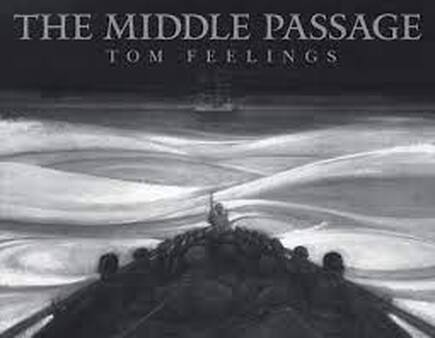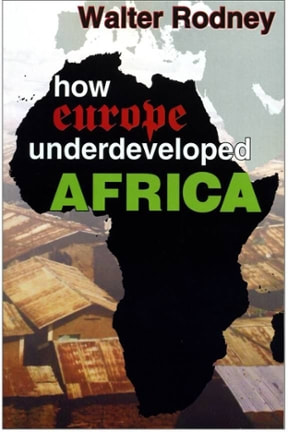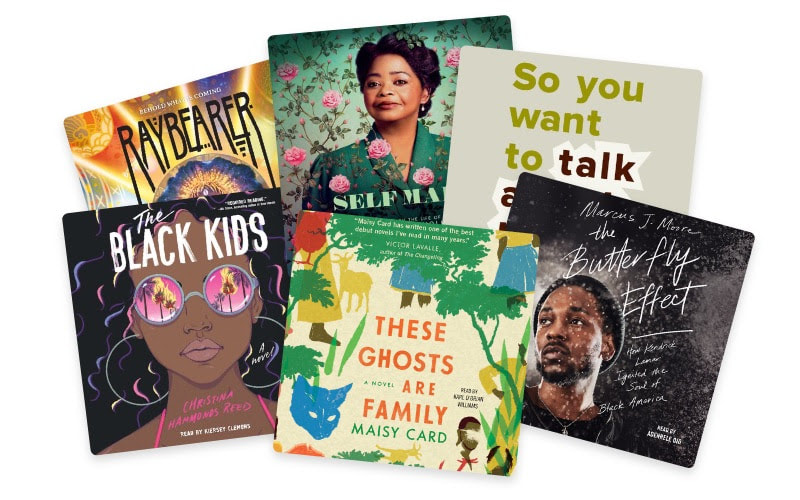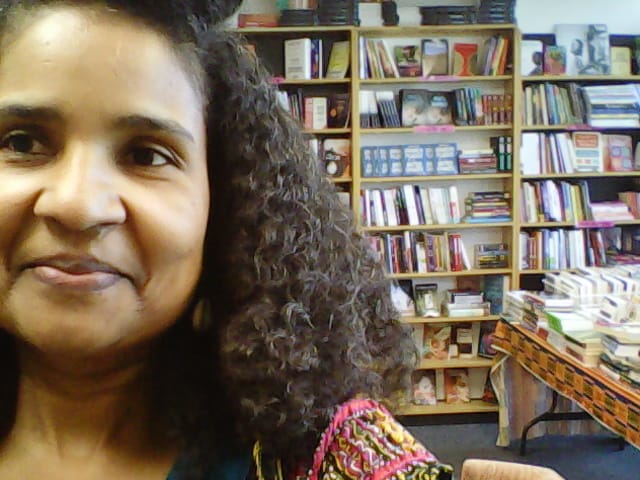|
It has been reported by some scholars like Dr. John Henrik Clarke that over 100 million Africans perished during the Trans-Atlantic slave trade. That’s higher than the population of Germany (83M), the United Kingdom (67M) France (65M) or Italy (60M) according to statisticstimes.com. When you compare it to the quantity of an entire country worth of people, we will then start to understand why it is laughable and absurd to hear people say, “get over slavery,” and, to “move on.” We are only beginning to understand the impacts of “The Maafa” as African-centered scholars have termed the “great disaster”, or "African Holocaust.” The harsh cruelties experienced will be felt for generations, unfortunately. Books on Slavery
Reading books on slavery is far from a walk in the park. It can be downright traumatic to re-live some of the narratives documented. I have had to read some in spurts to lesson the psychological blow. It seems the depths of pain and torture our Ancestors went through was bottomless. The iron chains, flogging, lack of proper meals, and separation of families could easily have caused our demise. And still we rise… …said Dr. Maya Angelou, with prophetic finesse. How on earth does one process this type of information? It is a very sensitive subject after all, and we are all at different places in understanding the magnitude of the loss.. On the one hand these horrific stories are utterly heart breaking and can lead to body-paralysis because of the detail given when describing the types of heinous acts performed against us; on the other hand, it can hit you like a ton of brings that it is only a resilient people, the strongest of the strong, the top tiered children that could have withstood this level of abuse and still survived through time. The tightrope walk we psychologically maneuver of seemingly opposing views is the grand balance needed to make your way through the books. Some books should come with a warning like this:
Warning: the content between these pages could be triggering for those who are sensitive to extreme violence. And don’t beat yourself up if you just aren’t able to get through that part of the book now, or ever. The words can actually sting and cause major bouts of crying as if living out the atrocities today. All I can say is “take your time.” When a customer stops by Afriware Books, Co and asks to see a book on slavery, I show them “The Middle Passage” by Tom Feelings. This book came out in 2018, it caused a major volcanic eruption in the community. This book may be thought of as having little text, but its life-like illustrations make up for it. Whenever I hand it to a customer to view it, I also hand them a chair to sit down to take it all in. After a few minutes the reader-browser has been transfixed to their chairs and enters into a world that few witnessed, except for the illustrator, Tom Feelings. The portrayal of emotions stored in the bodies springs to life and holds you captive within each page. I was careful in this list to make sure to mention examples of how we tried to escape this institution. The rhetoric about "happy" slaves was another tactic by slave holders to hold tighter to their "property." If they were so "happy," then why were there so many accounts of escape. The saying about (paraphrasing,) "Those who do not know their history are doomed to repeat it." Those who understandably are having a tough time getting through the material, I'm sure will also understand that it is an important part of our humanity to keep in our archives. No list on the topic would be complete unless it mentioned "The Life of Olaudah Equiano." It is the book often referenced to destroy the lie that most Africans just sold themselves right back into slavery. Certainly that did occur, however from his first hand account of having been captured and then escaped to tell the tale about it, he said most Africans were actually tricked into becoming enslaved and that those days are slowly disintegration, and others it will be savage. As always, if you’d like to know more, I encourage you to read for yourself and come to your own conclusions. All titles mentioned in this post are available from Afriware Books, Co, a Black-owned bookstore. If you do not find the title on the site, please feel free to email us at [email protected]. Comments are closed.
|
AUDIOBOOKSMERCHGIFTSjoin email listACADEMIC BOOKSblog Author/
|
- Store
- Blog
- AUDIO BOOKS
- EBOOKS
- SEARCH
- Welcome
- GoFundMe
- TUCC
- Events
- READING GUIDE
- AUTHOR INFORMATION
- ARTIST BIO/PRICE
- NNEDI OKORAFOR BOOKS
- PODCAST
- LARUE'S HAND IN CLAY
- About Us
- FREQUENTLY ASKED QUESTIONS
- BOOK FAIR /SCHOOLS / CLUBS
- Photo Gallery
- EJP BOOK DRIVE
- Videos
- Newsletter/Articles
- Archives
- External Links
- Afriware Statement on COVID-19
- GREATER LAKES
- Afriware Merchandise
- AFFILIATE INFO
- SEBRON GRANT ART DESIGNS
- Mother's Day Bundles
- CARTOON
- ROBOTS
- STEM
AFRIWARE BOOKS CO. A COMMUNITY BOOKSTORE SERVING:
|
|
Melrose Park, IL
|
|
,AFRIWARE BOOKS, CO,
1033 SOUTH BOULEVARD, OAK PARK, IL 60302 708-223-8081 ONLINE SUPPORT: Thurs-Fri. 4-6pm Sat. 12-2pm, IN PERSON EVENTS: afriwarebooks.com/events |
Want to try a great website builder, try Weebly at: https://www.weebly.com/r/9SAD4V









 RSS Feed
RSS Feed


